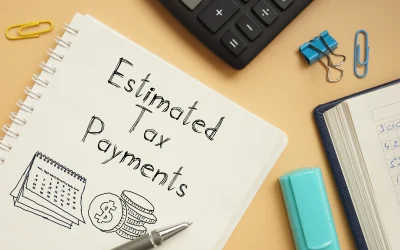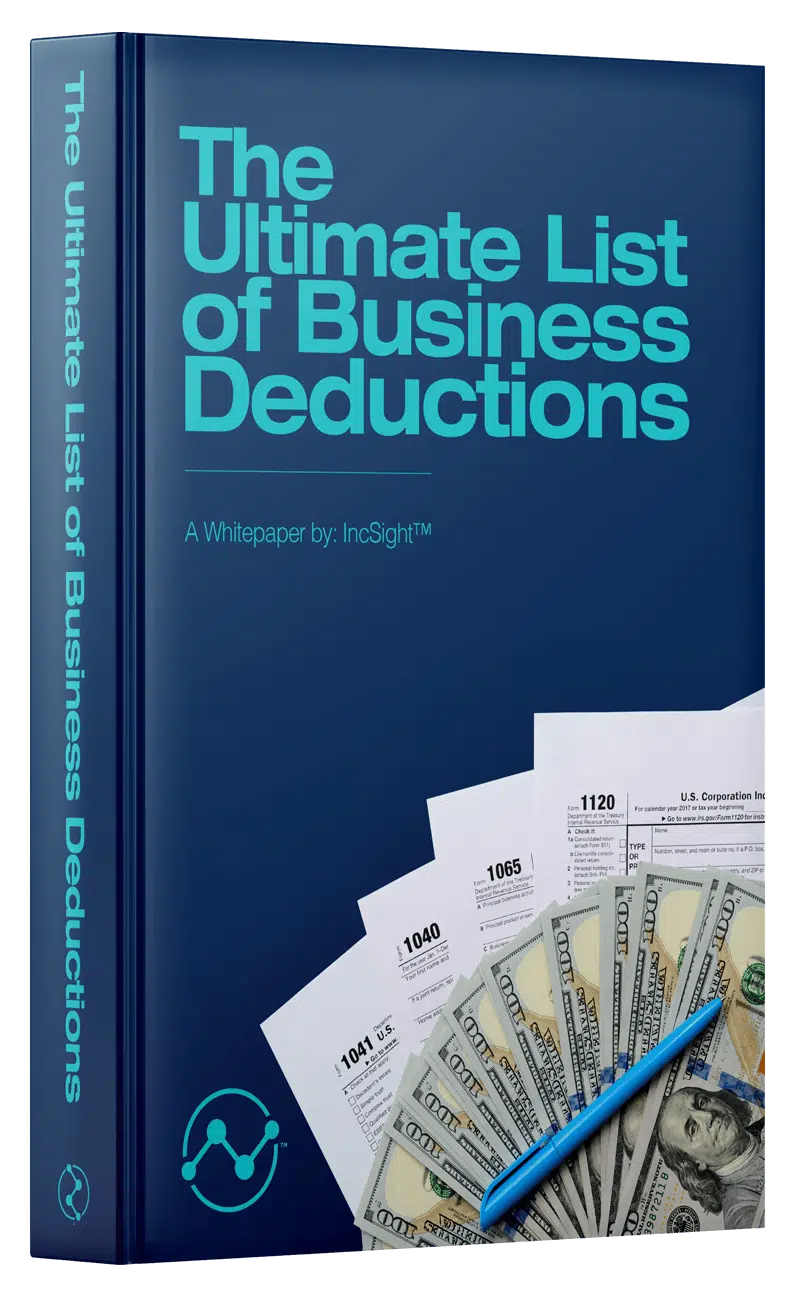In our comprehensive series on rental properties and taxes, we covered a wide range of topics to help real estate investors maximize their tax savings and boost their investment returns. If you missed any part of that series or need a refresher, you can access our Ultimate Guide to Real Estate Taxes here!
Here we are go to summarize some of the key takeaways and essential information you want to know about rental properties here in 2024!
Depreciation: A Powerful Tax-Saving Tool
One of the most significant tax benefits for rental property owners is depreciation. By deducting the cost of a property over a set number of years, investors can reduce their taxable income and save money on taxes. In the series, we discussed the different types of depreciation, including straight-line, accelerated, and bonus depreciation, as well as how to calculate and claim these deductions on your tax return.
Those looking to get a bigger deduction up front often utilize a cost segregation study to identify and reclassify assets within a property, allowing property owners to accelerate depreciation deductions on certain items.
Deductible Rental Property Expenses
Operating a rental property comes with various expenses, many of which are tax-deductible. In the series, we explored common deductible expenses such as mortgage interest, property taxes, insurance, repairs, maintenance, and property management fees. We also discussed the importance of keeping accurate records and receipts to substantiate your expense claims during an audit.
Real Estate Example Including Passive Activity Loss Rules and Real Estate Professionals
When it comes to wrapping your head around all of this real estate investing and taxes many people get confused. To help paint a more clear picture lets use an example to help illustrate the tax savings potential with a rental property utilizing a cost segregation study.
- Purchase Price: $750,000 ($150k Attributed to Land, $600k Attributed to Building)
- 20% Down Payment: $150,000
- Cost Segregation Study (5, 7, and 15 Year Property): $228,000
- 80% Bonus Depreciation in 2023: $182,400
- 27.5 Year Depreciation: $372,000 or roughly $13,500 per Year
In this example, you invested $150,000 but got a year 1 deduction of $196,000+ that could potentially offset other income of yours.
One thing to note is that passive losses can only offset other passive income. Essentially, if you have a rental property (passive) and you have a loss in it due to high depreciation, you can only offset that loss against other passive income (rental activity or businesses you do not actively participate in) but you cannot use that loss to offset earned income (W2) or non-passive capital gains. Those unused losses will be carried forward.
Now with that being said there are some strategies you can use to maximize those losses:
- Being an Active Real Estate Investor
- If you are under certain income limits you can claim up to $25,000 in rental real estate loss allowance from the property, if you “actively participate” in managing it.
- Become a Real Estate Professional
- Qualifying as a real estate professional allows you to fully deduct passive losses against your ordinary income. There are various requirements that need to be met to qualify.
- Generate More Passive Income
- If you are a business owner is there part of your business that you do not actively participate in? Could you split that off into a separate passive entity for you?
- Do you have another property you could sell at a gain to use the losses against?
- Do you have a highly appreciated asset you could sell at a gain to use the losses against?
- Can you invest in a high cash flow passive activity that the losses can be used to offset?
In our series, we explained the passive activity loss rules that limit the amount of losses real estate investors can offset against their non-passive income. However, we also discussed the real estate professional designation, which allows qualified individuals to bypass the passive activity loss limitations and fully deduct their rental losses against other income sources.
Short-Term Rentals Loophole
The rise of platforms like Airbnb and VRBO has made short-term rentals a popular investment strategy and there is a unique “loophole” in the tax code that makes these favorable. We just discussed the passive loss rules and how you would need to qualify as a real estate professional to offset loss against your ordinary income but there is one loophole to get past that and that is short-term rentals.
From a high level, if your average rental is 7 days or less it qualifies as a short term rental. Even though it is a “rental property”, since it is short-term the IRS does not classify it as rental activity and thus it is not considered passive. This means it is not subject to the passive loss rules and you may be able to use short term rental losses to offset your regular income (W2, business, etc.)
In order to use a short term rental to offset non-passive income you need to prove that you “materially participate” in the activity. There are 7 tests that you can use to meet but the most common one we see is participating in the activity for more than 100 hours during the year and more than any other individual.
In our series we dug into this concept even further but if you are unable to qualify as a real estate professional then utilizing the short-term rental loophole could be a great second option.
Real Estate Job or Flipping
Much of what we are discussing here is related to rental properties but if you are in the business of real estate earning ordinary income, you may want to look at an S Corp. This would NOT be for rental properties but rather real estate agents, flippers, contractors, etc.
We have an entire series on the S Corp that you can check out here but from a high level stand point, if you have a business (not rental properties) and earning $50k+ it may make sense to do an S Corp election for your business.
Real Estate Exit Strategies
There will come a time that you want to sell a property of yours. It’s important to think about the tax implications of that prior to the sale to ensure you are avoiding or paying the least amount in taxes on that sale as possible. More often than not we see folks utilizing 1031 exchanges, charitable trusts, etc in the scenarios.
A 1031 exchange allows real estate investors to defer capital gains taxes when selling a property by reinvesting the proceeds into a like-kind property. Our podcast episodes covered the rules and requirements for a successful 1031 exchange, including timeframes, property identification, and the role of a qualified intermediary.
Conclusion
Understanding and leveraging tax strategies for rental properties can significantly impact your investment returns. By revisiting the key takeaways from our podcast series, you’ll be better equipped to optimize your tax savings and maximize your profits as a real estate investor. For a deeper dive into each topic, be sure to check out the full series at The Ultimate Guide to Real Estate Taxes.
-
The Time Is NOW To Start Paying Less In Taxes. Join TaxElm and start eliminating taxes and growing your wealth!
What you’ll get:
- Tax Savings Blueprint and Training: We’ll provide you with a customized tax plan that is tailored to meet your specific needs and goals. Along with that, you have access to our library of training modules, implementation guides, supporting documents, and more.
- Unlimited Access to Tax Experts: Got a specific question about a tax strategy? You’ll have access to our team of tax experts to get the accounting and tax answers you need.
- Annual 1-on-1 Live Consultation: Once a year you get a live meeting with a tax expert to discuss anything tax savings you would like. This is your time to get your questions answered live 1-on-1.
- Annual Bookkeeping Analysis: Annually you will submit your financials to our team of accountants and we will put together a high level business financials overview report custom to your business.
- Monthly Group Webinar and Training: Every month, we host a live, virtual training session on a key tax topic. Join us live and bring your questions or view the recording on your own schedule.
- Partner Directory and Discounts: You get exclusive, members-only rates and access to our expert referral network for accounting, bookkeeping, tax preparation, payroll, financial planning, legal, retirement planning, tax resolution, and more!
It is like having a tax strategist walking with you along this entrepreneurial journey!








